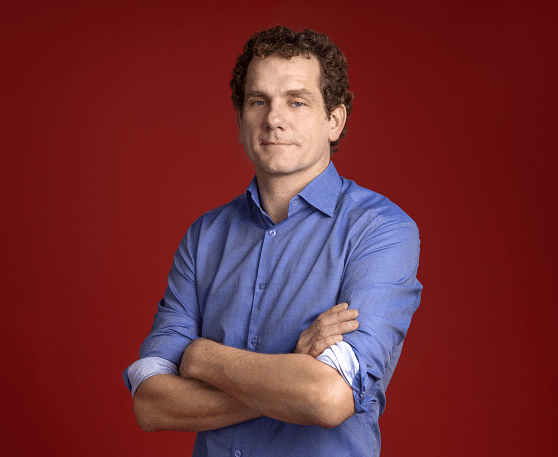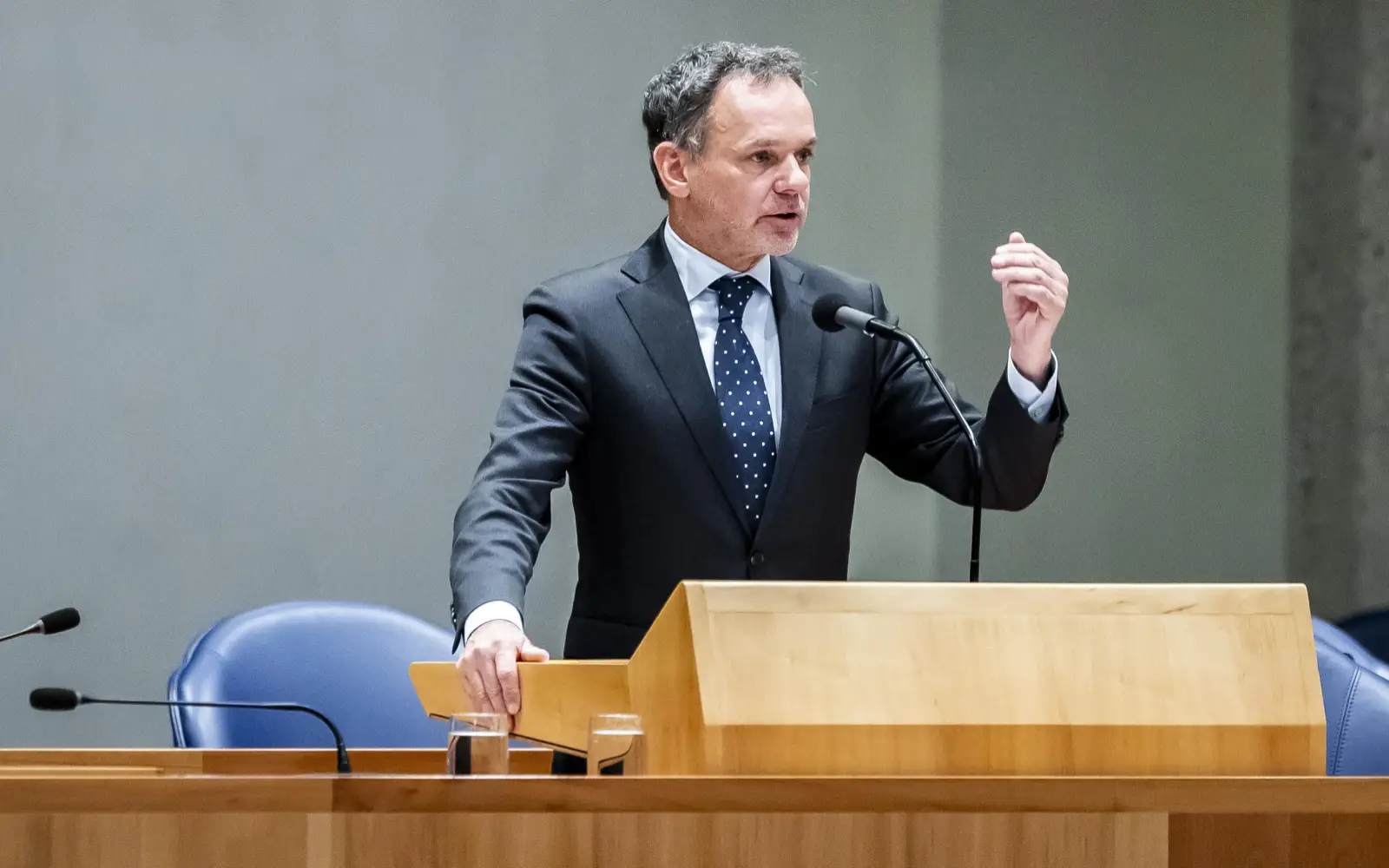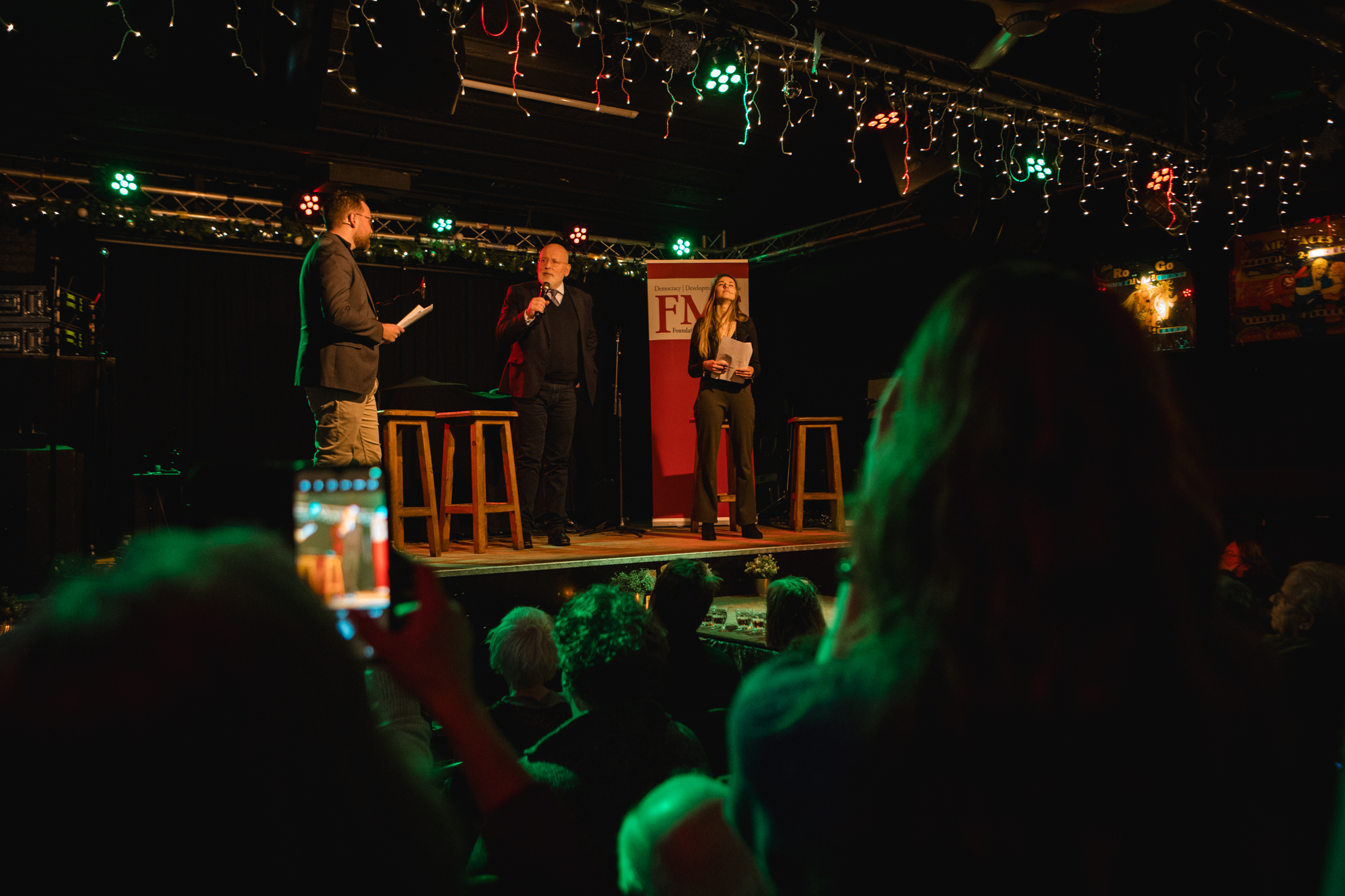In the run-up to the publication of our report Climate Justice: African Perspectives the FMS interviewed several activists, politicians and experts working on climate justice (climate justice) engage. After all, what does climate justice mean to them? And how are they committed to it? The first interview in this series is with Joris Thijssen: Member of Parliament on behalf of the Labour Party (PvdA) and former director of Greenpeace.
What does climate justice mean to you?
"Climate justice is about two things: first, we must ensure that the impacts of climate change are prevented or minimised for everyone. And if impacts do occur, then everyone should be helped as much as possible. The second thing is that the strongest shoulders bear the heaviest burden, and that costs are shared fairly. People abroad and people with low and middle incomes are going to face the consequences, and also the measures that will have to be taken. But in this, they are not being helped enough."
Are African perspectives taken into account enough in the climate policies of the Netherlands and other European countries?
"No, actually not. Actually in almost no way. We promise too little, and then we don't even do what we promise. Climate finance is the prime example of this. Under the guise of international solidarity, it was agreed in the Paris climate accord, for example, that money should go to developing countries. We also put numbers on that, but we do not fulfil our agreements.
Also, if we ourselves do not reduce emissions enough to stay below that crucial one-and-a-half degree warming limit, then we are also ignoring those most vulnerable groups in the world. Because they will be the ones who suffer the consequences of climate change. And Africa is the continent where climate change will hit hardest. By not doing enough ourselves to stay below that one-and-a-half degree, we are giving Africa the finger."
How do we tackle that better?
"Our trade policies must be brought in line with the Paris climate agreement. Our trade with Africa includes activities that only increase greenhouse gas emissions or deforestation. As a result, those countries become dependent on unsustainable trade for their development. Thus, we are only making the problems worse.
For example, Shell is investing in Nigeria because there is a lot of oil to be extracted there. That has to stop sometime. Phasing out Dutch support for fossil energy is too slow. It would be much more useful to exploit other opportunities in African countries. In Africa, for instance, there is much more sun than here. If you stop supporting Shell to look for oil and gas in Africa, and instead invest in solar panels in those countries, you help the local economy a lot. With those investments, communities can take adaptive measures themselves.
And you also help Europe by allowing us to buy some of the energy produced there. You can use solar energy to produce green hydrogen - an energy source that we as Europe are going to need a lot of in the future. We need that to green our industry, to run heavy transport in a sustainable way. And also to meet our energy needs when the wind does not blow and the windmills are not running.
We really cannot produce that energy on our own. Right now, we also import our energy from abroad, which can also be done in a sustainable way. Then you have a trading relationship that allows those countries to invest in their developing economies, and we ourselves have green energy supplies in Europe."
This November, the Glasgow Climate Conference is taking place. You will be there yourself as a parliamentarian. What is the first thing to be decided there?
(Laughs) "I used to stand outside at climate conferences campaigning with Greenpeace, instead of lobbying inside with my tie on. Indeed, a number of MPs may go with me to Glasgow, but I don't yet know exactly what my role there will be.
What needs to happen, first of all, is that all countries with higher commitments come, which will ensure that we stay below that one-and-a-half degree of warming instead of the three degrees we are currently heading for. Secondly, rich countries need to come up with more money for developing countries. It is time to stop worrying so much about ourselves and look around us. And third, coherent policies need to be made: trade and other policies need to be aligned with our climate policy."
How will you work for climate justice in the future?
"A first question is whether we as the Labour Party will be at the formation table. If so, the first step should be to ensure that the Dutch government keeps its promises. Climate justice also calls for a PvdA response, it calls for solidarity and fairness where the strongest shoulders carry the heaviest burden - polluters have to start paying the bill. For example, if we are going to insulate houses in the Netherlands, start with the lowest-income houses and make sure they come out on top, and do not have to make a sacrifice themselves. And internationally, it is important to keep the promise of 100 billion to the poorest countries, and that should be new and additional to the budget for development cooperation.
Social climate policy is also effective climate policy because you create support. Suppose you want to erect a wind turbine near a village. If a project developer erects that windmill and takes all the profits from it, you create resistance to climate policy. If you let people co-invest and co-build, then climate policy is fairer, but also more effective - because there is more support for it."
The report 'Climate Justice: African Perspectives' by the Max van der Stoel Foundation and the Foundation for European Progressive Studies (FEPS) highlights African perspectives on climate change, calling for a place at the table for these voices in making fair climate policies. The publication is expected in September this year.





